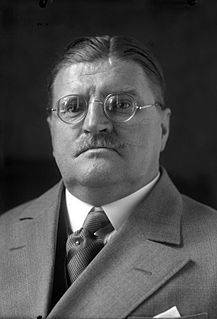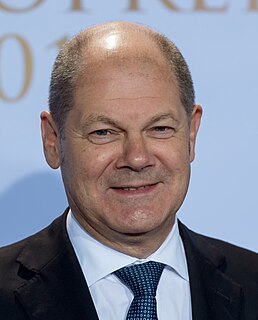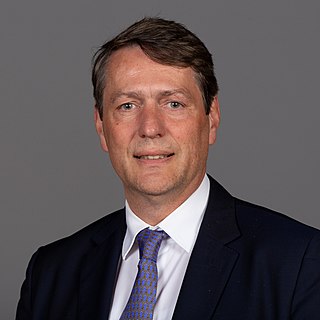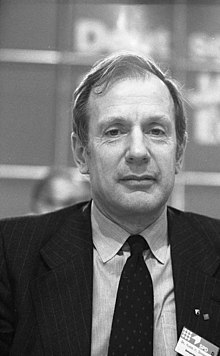
Klaus Wowereit is a German politician, member of the SPD, and was the Governing Mayor of Berlin from 21 October 2001 to 11 December 2014. In 2001 state elections his party won a plurality of the votes, 29.7%. He served as President of the Bundesrat in 2001/02. His SPD-led coalition was re-elected in the 2006 elections; after the 2011 elections the SPD's coalition partner changed from the Left to the Christian Democratic Union. He was also sometimes mentioned as a possible SPD candidate for the Chancellorship of Germany (Kanzlerkandidatur), but that never materialized.

Carl-Friedrich Arp Ole Freiherr von Beust, generally called Ole von Beust, is a German politician who was First Mayor of Hamburg from 31 October 2001 to 25 August 2010, serving as President of the Bundesrat from 1 November 2007 on for one year. He was succeeded as mayor by Christoph Ahlhaus.

Otto Lebrecht Eduard Daniel Meissner was head of the Office of the President of Germany during the entire period of the Weimar Republic under Friedrich Ebert and Paul von Hindenburg and, finally, at the beginning of the Nazi government under Adolf Hitler.

Wolfgang Tiefensee is a German SPD politician. He was the Federal Minister for Transport, Building and Urban Development in the grand coalition cabinet led by Angela Merkel between 2005 and 2009. Since 2014, he has been the State Minister of Economy, Science and the Digital Society in the government of Thuringia's Minister-President Bodo Ramelow

Hans von Dohnányi was a German jurist of Hungarian ancestry, rescuer of Jews, and German resistance fighter against the Nazi régime.

The Bonhoeffer family is a German family originally descending from Nijmegen and documented in Schwäbisch Hall from 1513 onwards. Among the family's most notable members are the sons of psychiatrist and neurologist Karl Bonhoeffer, Dietrich Bonhoeffer (1906–1945) and Klaus Bonhoeffer (1901–1945), both resistance fighters against the Nazi régime who were executed in the last days of World War II.

Giovanni di Lorenzo is a German-Italian journalist. Editor-in-chief of German nationwide weekly newspaper Die Zeit and former editor-in-chief of Berlin's liberal daily newspaper Der Tagesspiegel. Additionally di Lorenzo is a prominent talk show host for the Radio Bremen show 3nach9 airing monthly on NDR.

Hans-Ulrich Klose is a German politician from the Social Democratic Party and a former member of the German Federal parliament. Klose was the First Mayor of the Free and Hanseatic City of Hamburg from 1974 up to 1981, serving as President of the Bundesrat in 1979/80.

Olaf Scholz is a German politician serving as Federal Minister of Finance and Vice Chancellor under Chancellor Angela Merkel from the CDU since 14 March 2018. He served as First Mayor of Hamburg from 7 March 2011 to 13 March 2018 and Acting Leader of the Social Democratic Party (SPD) from 13 February to 22 April 2018.

Thomas Ludwig Albert Oppermann is a German politician and member of the Social Democratic Party (SPD). Since October 2017 he has been Vice President of the Bundestag. He served as First Secretary (2007-2013) and later as chairman (2013-2017) of the SPD Parliamentary Group in the Bundestag.
Christine Hohmann-Dennhardt is a German politician and senior judge.

Dietrich Wersich is a German politician of the German Christian Democratic Union (CDU), and physician. Since March 7, 2011 he is chairman of the CDU parliamentary Group in the Hamburg state legislature, the largest opposition party. From May 7, 2008 to March 7, 2011 he was Hamburg State Minister of Social Affairs, Family Affairs, Health and Consumer Protection. From November 29, 2010 to March 7, 2011 he was also Deputy Mayor of Hamburg.

Dorothee Stapelfeldt is a German politician, representative of the Social Democratic Party of Germany (SPD) and member of the Hamburg Parliament.

Manuela Schwesig is a German politician of the Social Democratic Party serving as the fifth Minister‐President of Mecklenburg-Vorpommern since 4 July 2017. She is the first woman to serve as head of government of this state. Previously she served as Federal Minister of Family Affairs, Senior Citizens, Women and Youth from 2013 to 2017.

Maria Luise Anna "Malu" Dreyer is a German politician (SPD). Since 13 January 2013, she has served as Minister President of Rhineland-Palatinate. She is the first woman to hold this office. She served a one-year-term as the President of the Bundesrat from 1 November 2016-2017, which made her the deputy to the President of Germany while in office. She was the second female President of the Bundesrat and the sixth woman holding one of the five highest federal offices in Germany.

Helmut Rohde was a German politician who served as federal minister of education and science from 1974 to 1978.

Walther Gottlieb Louis Leisler Kiep was a German politician of the Christian Democratic Union (CDU). He was a member of the Bundestag between 1965 and 1976 and again from 1980 to 1982. After switching to state-level politics, he served as minister of economy (1976–77) and minister of finance (1976–80) in Lower Saxony under Ernst Albrecht. In 1982, Kiep was the leading candidate for the CDU in two successive state elections in Hamburg, losing both to incumbent Klaus von Dohnányi. From 1971 until 1992, he was treasurer of his party at the federal level. In this position, Kiep installed a system of unreported income accounts, leading to the CDU donations scandal in 1999.

Monika Wulf-Mathies is a German politician, who was European Commissioner for Regional Policy.






























